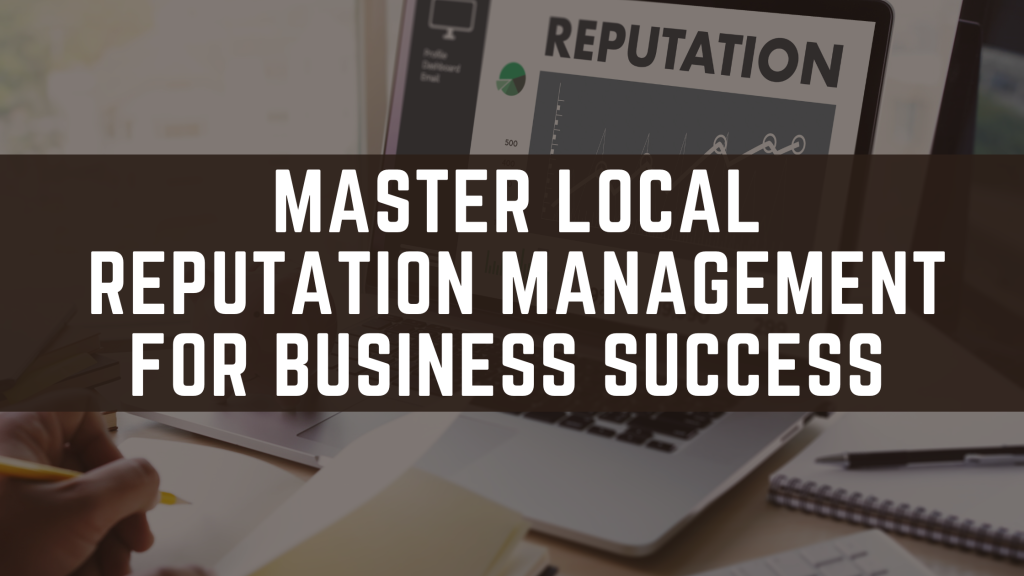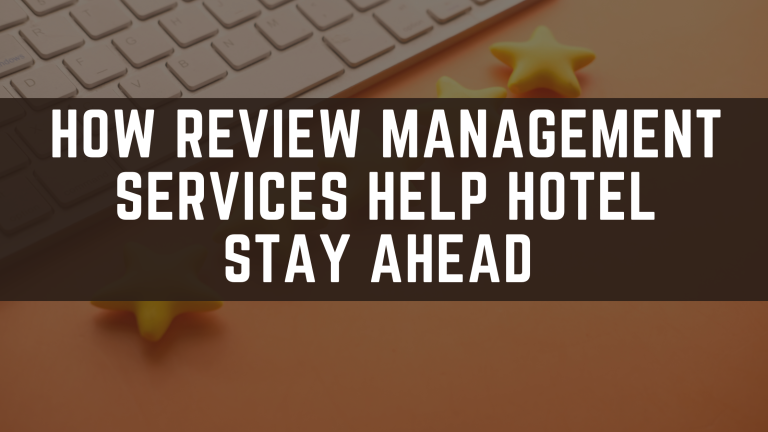People trust local businesses with good reputations. Whether you own a restaurant, a dental practice, or a roofing company, your online reputation affects customer decisions. If your business has great reviews, people are more likely to choose you over the competition.
A strong reputation influences customer trust, boosts visibility on search engines, and drives more sales. Ignoring reputation management can lead to lost revenue and a bad brand image. The good news? You can control your narrative with the right approach.
Reputation management isn’t just about reviews—it’s about your overall online presence. Your website, social media, and how you respond to customer feedback all contribute to how people perceive your business.
Understanding Your Local Online Presence
Before improving your reputation, you need to assess where you currently stand. Your business may have great customer service, but if your online presence is lacking, potential customers might never know it.
Key Areas to Monitor:
- Google My Business (GMB): Ensure your listing is accurate and up-to-date.
- Review platforms: Monitor Google Reviews, Yelp, Facebook, and industry-specific sites.
- Social media mentions: Track what people say about your business online.
- Local directories: Make sure your business is listed on platforms like BBB and Yellow Pages.
If you don’t know what people think about your brand, you can’t fix it. Use reputation management tools to keep track of online mentions and customer feedback.
How to Improve Local Reputation Management
Improving your reputation takes effort but is worth it. Customers want businesses that care about service and experience. Follow these steps to strengthen your local presence.
Claim and Optimize Your Business Listings
Customers look at local directories before making decisions. If your business isn’t listed, they might go elsewhere. Verify your business on Google My Business and update your contact information across all directories. Adding high-quality images also makes your listing more appealing. The number of sites to maintain can quickly get overwhelming, though there are tools to manage this like our own Local Listings add-on or separate tools like Yext.
A complete and optimized listing helps you rank higher in local searches and makes it easier for customers to find you.
Encourage More Positive Reviews
Good reviews improve credibility. Customers trust businesses with recent and positive feedback. The best way to get more reviews is to ask. Request reviews after every service or purchase and provide an easy way for customers to leave feedback.
Make it easy for customers to leave reviews by:
- Providing direct review links on your website and emails.
- Training staff to ask happy customers for feedback.
- Displaying review requests on receipts and invoices.
- Offering incentives like discounts or small rewards for leaving a review.
Avoid fake reviews—authentic customer opinions hold more weight and build long-term trust.
Respond to Reviews—Good and Bad
Ignoring reviews hurts your brand. Customers expect businesses to acknowledge feedback. Thank customers for positive reviews and apologize or provide solutions for negative ones. Stay professional and avoid defensive responses.
How you handle criticism shows professionalism and commitment to customer service. A well-crafted response can turn a negative experience into a positive one.
Best Practices for Responding to Reviews:
- Positive reviews: Express gratitude and personalize your response.
- Negative reviews: Acknowledge the issue, show empathy, and offer a resolution.
- Neutral reviews: Ask for feedback to improve the customer experience.
- Public vs. private response: Address minor issues publicly, but take serious concerns to a private channel for resolution.
Engage with Your Local Community
Being active in your local area builds trust. Customers prefer businesses that support their communities. You can strengthen your local presence by sponsoring events, joining local business groups, and engaging with customers on social media.
Supporting local initiatives increases brand visibility and creates strong customer connections. People appreciate businesses that contribute to their community.
Some ways to get involved include:
- Partnering with local charities or nonprofits.
- Hosting community events or workshops.
- Collaborating with other small businesses.
Customers feel more connected to businesses that actively contribute to the local area.
Use Social Media to Build Trust
Social media isn’t just for marketing—it’s also for reputation management. An active presence helps customers interact with your brand. Posting updates, responding to comments, and sharing customer testimonials help keep your brand relevant and engaging.
What to post on social media:
- Company updates and upcoming events.
- Customer testimonials and success stories.
- Answers to common customer questions.
- Behind-the-scenes content to humanize your brand.
- Live Q&A sessions to engage your audience.
A well-maintained social media presence keeps your brand top-of-mind and trustworthy.
Monitor Your Online Mentions
Reputation management isn’t a one-time task. It requires regular monitoring and improvement. Use tools like Google Alerts to track brand mentions and set up notifications for new reviews. Analyze trends in customer feedback to understand what works and what needs fixing.
By staying informed, you can address concerns before they escalate and maintain a positive image.
Avoid Common Reputation Mistakes
Even the best businesses make mistakes. The key is knowing how to avoid common pitfalls. Ignoring reviews, deleting negative feedback, and having inconsistent information across platforms can harm your reputation.
Top Mistakes to Avoid:
- Ignoring reviews: Customers expect engagement, even if the feedback is negative.
- Deleting negative feedback: Instead of removing reviews, address the concerns professionally.
- Providing inconsistent information: Make sure your business name, contact details, and services match across all platforms.
- Over-promising and under-delivering: Be honest about what your business can provide.
- Not responding fast enough: A quick response to feedback shows professionalism.
A strong reputation comes from consistently delivering great service and engaging with customers.
Strengthen Your Local Reputation Today
A great local reputation doesn’t happen by accident. It requires effort, consistency, and engagement. If you want to attract more customers, focus on building trust and credibility.
By optimizing your business listings, encouraging reviews, and engaging with customers, you can create a reputation that stands out. Managing your online presence isn’t just about damage control—it’s about creating a business that people can rely on.
Want expert help? Visit The Reputation Lab to learn how we can improve your business’s online presence today!




